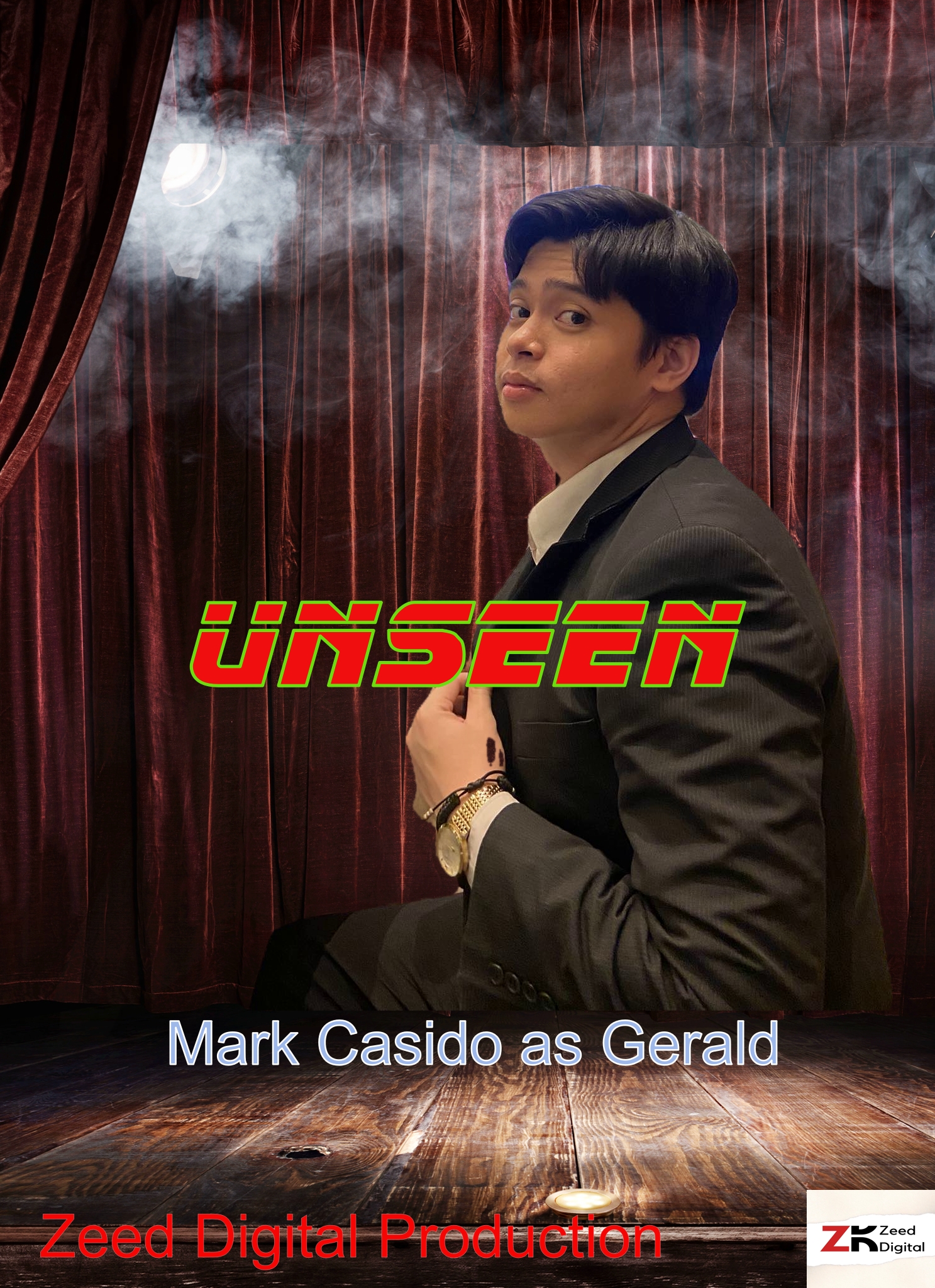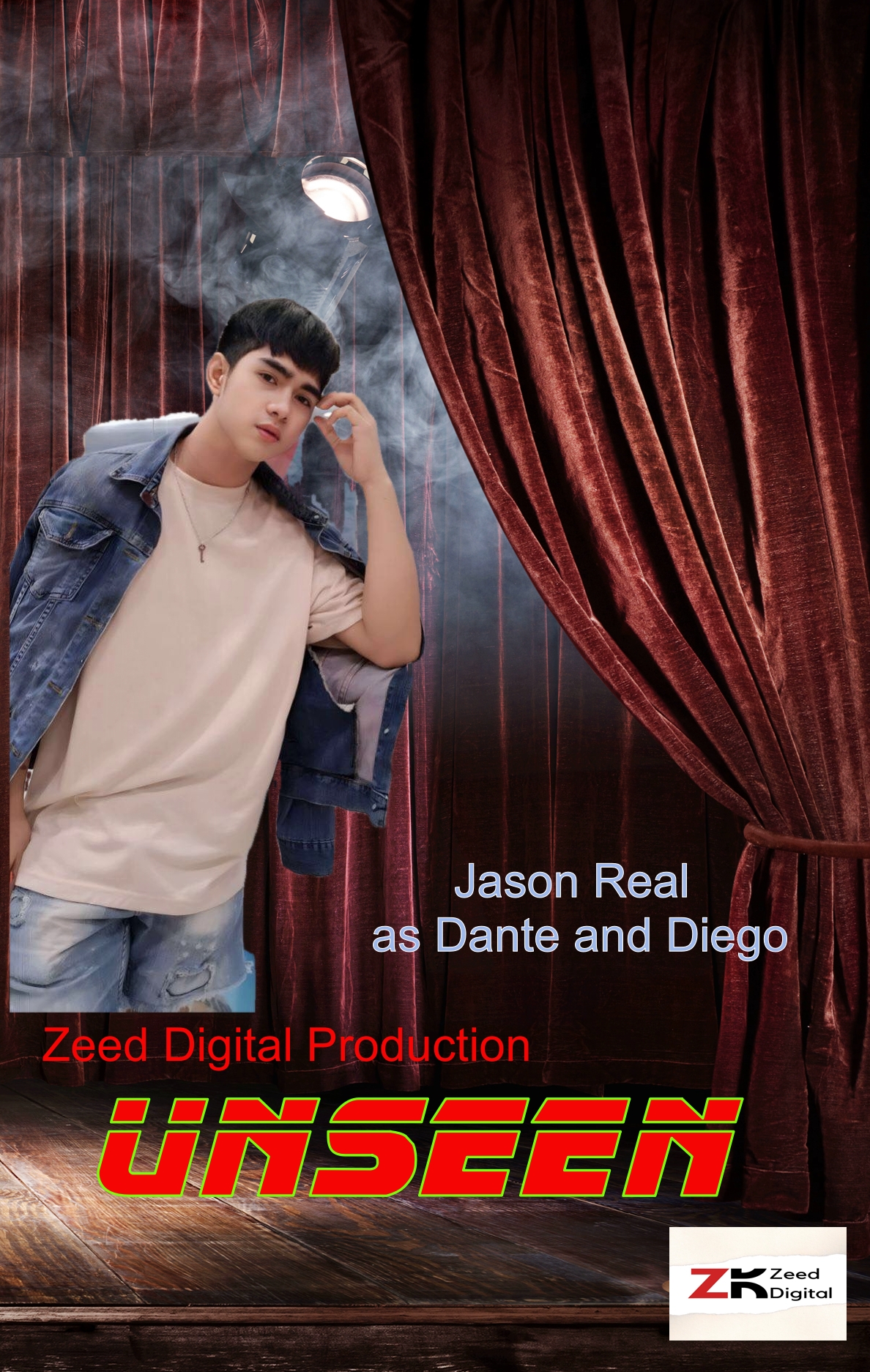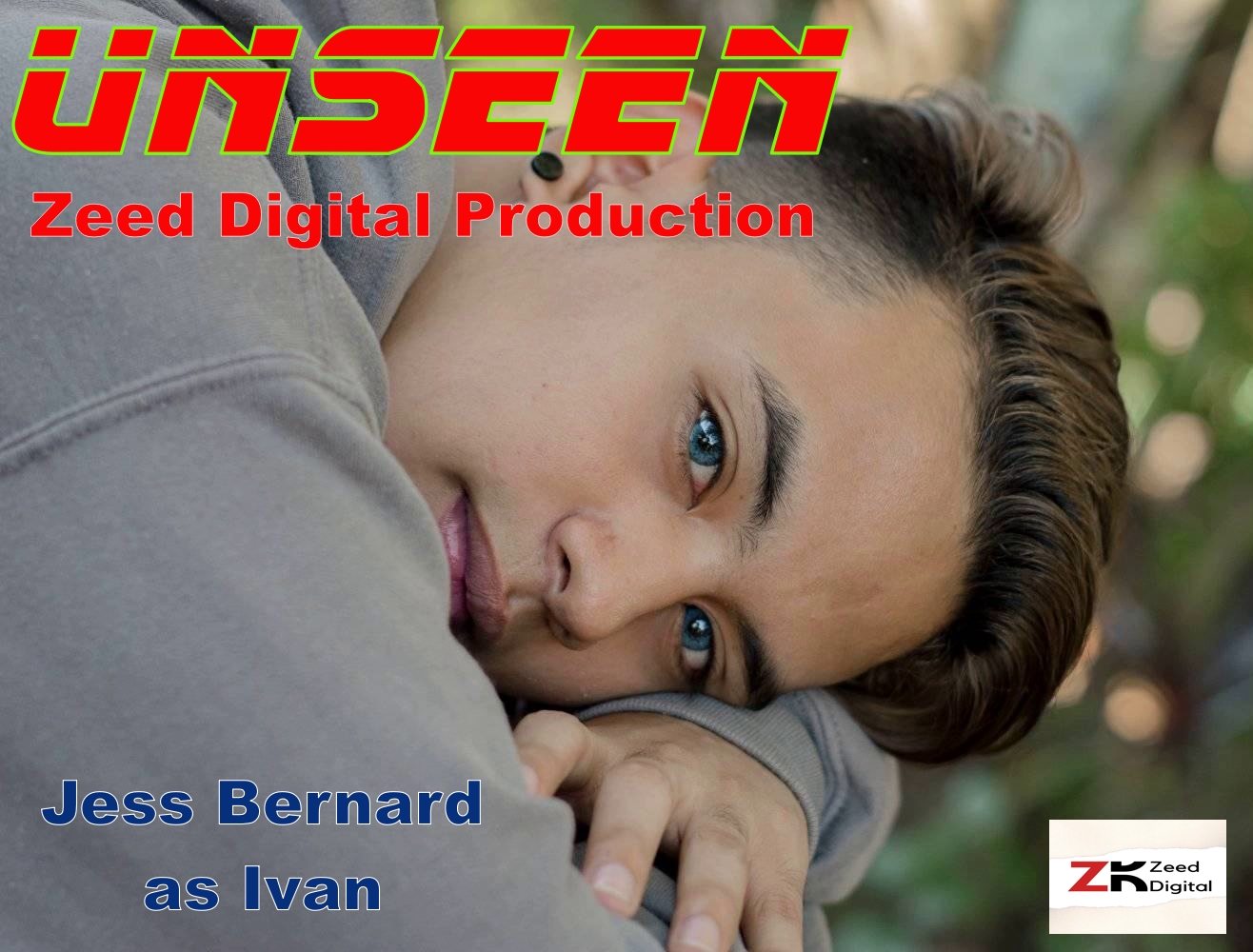Richard Tolentino
Hands on Producer, Director, and Scriptwriter: Effective at bringing projects from concept to reality. Experienced in personnel and project management with a passion for turning the best ideas into film, in particular are Boy’s Love genre that involves medical disorders, creating something that entertains and inspires, and with a passion for advocacy films. Excels at relationship building, organization, and making sound judgments under pressure and within tight deadline.
Your project has entered in our festival. What is your project about?
The project is about mental health disability/disorder. The antagonist is suffering from split-personality disorder. The “UnSEEN” disorder was not noticed by the protagonist when they first met at the street, where the antagonist was drunk. We are trying to show in this short film that persons suffering from this disorder can fall in love, even if that love can lead to a tragedy.

What are your ambitions with your project?
Our goal in this project is to be an advocate for people with mental health disabilities. Our ambitions is to reach big festivals such as Cannes, Sundance, Venice, or Berlin, or maybe reach the Oscars. When I created this project, it is my dream to dream big. Bigger than what I can think of. As my motto states “Dreaming the biggest accomplishment in life is much better than dreaming little steps at a time, such that even if you do not reach that biggest dream, your big leap already has created something deep inside you that will just keep on pushing you hard to accomplish your goal.”
Tell us something about your shooting? What pleasantly surprised you?
My biggest surprised is that two of my actors (the antagonist and the protagonist were both fairly new with less acting experience) and yet, they were able to deliver the necessary elements to accomplish a very nicely, acted film.
For what group of spectators is your film targeted?
Since all my actors are fairly young (19, 20, 21 years old), we are trying to target the young generation of the LGBTQ community (18+). But this is not to say that our film will not be appreciated by the young-at-heart. Our film is a BL (boy’s love) category and I believe it caters to the very big market of the LGBTQ community worldwide.


Why should distributors buy your film?
Simply because of the big market of the LGBTQ community. In addition, our film is a one-of-kind story of mental health disorder that is seldom tackled. The uniqueness of our film, serving an advocacy film for PWDs (persons with disabilities), is where this film stands out in the BL category.
How would you specify your work? What characterizes your film?
I will specify my work as experimental, in the sense that it is low-budgeted, but the output that we have produced is of high quality. We are tying to prove that, you do not need to spend much money to create a quality film. Characterizing our film is to say that it is an experimental low-budget film with neophyte actors, and yet it has these commercial and critical appeals.
Why did you decided to become a filmmaker?
I have always known myself to be creative, but has never explored my talent in any form of creative arts. At one point last year, I was watching a BL series on YouTube and this young Filipino actor caught my attention. I told myself “Why not try to get in touch with this actor, and produce my first film with him?”. And the rest is history.
Your project has entered in our festival. What is your project about?
The project is about mental health disability/disorder. The antagonist is suffering from split-personality disorder. The “UnSEEN” disorder was not noticed by the protagonist when they first met at the street, where the antagonist was drunk. We are trying to show in this short film that persons suffering from this disorder can fall in love, even if that love can lead to a tragedy.

What are your ambitions with your project?
Our goal in this project is to be an advocate for people with mental health disabilities. Our ambitions is to reach big festivals such as Cannes, Sundance, Venice, or Berlin, or maybe reach the Oscars. When I created this project, it is my dream to dream big. Bigger than what I can think of. As my motto states “Dreaming the biggest accomplishment in life is much better than dreaming little steps at a time, such that even if you do not reach that biggest dream, your big leap already has created something deep inside you that will just keep on pushing you hard to accomplish your goal.”
Tell us something about your shooting? What pleasantly surprised you?
My biggest surprised is that two of my actors (the antagonist and the protagonist were both fairly new with less acting experience) and yet, they were able to deliver the necessary elements to accomplish a very nicely, acted film.
For what group of spectators is your film targeted?
Since all my actors are fairly young (19, 20, 21 years old), we are trying to target the young generation of the LGBTQ community (18+). But this is not to say that our film will not be appreciated by the young-at-heart. Our film is a BL (boy’s love) category and I believe it caters to the very big market of the LGBTQ community worldwide.


Why should distributors buy your film?
Simply because of the big market of the LGBTQ community. In addition, our film is a one-of-kind story of mental health disorder that is seldom tackled. The uniqueness of our film, serving an advocacy film for PWDs (persons with disabilities), is where this film stands out in the BL category.
How would you specify your work? What characterizes your film?
I will specify my work as experimental, in the sense that it is low-budgeted, but the output that we have produced is of high quality. We are tying to prove that, you do not need to spend much money to create a quality film. Characterizing our film is to say that it is an experimental low-budget film with neophyte actors, and yet it has these commercial and critical appeals.
Why did you decided to become a filmmaker?
I have always known myself to be creative, but has never explored my talent in any form of creative arts. At one point last year, I was watching a BL series on YouTube and this young Filipino actor caught my attention. I told myself “Why not try to get in touch with this actor, and produce my first film with him?”. And the rest is history.
Who is your role model?
My role model is the great Filipino director LINO BROCKA. I believe he is the first Filipino director who was invited to the prestigious CANNES Film Festival in 1976. All the movies that he created, to my opinion are masterpieces, full of creative freedom.
My role model is the great Filipino director LINO BROCKA. I believe he is the first Filipino director who was invited to the prestigious CANNES Film Festival in 1976. All the movies that he created, to my opinion are masterpieces, full of creative freedom.
Which movie/s are your favorites? Why?
My favorite movie is INSIANG, directed by Lino Brocka. Insiang (1976) was the first Philippine film that was shown at the Cannes Film Festival.] It was screened in the Directors' Fortnight section of the 1978 Cannes Film Festival. It is considered to be one of Brocka's best films — some say his masterpiece. The film centers on a young woman named Insiang who lives in the infamous Manila slum area, Tondo. It is a Shakespearean tragedy that deals with Insiang's rape by her mother's lover, and her subsequent revenge.
As for the foreign movies, my favorites are “Blue is the warmest color” due to the artistic shots in lovemaking, and the “The Matrix Trilogy” due the special effects, which I hope I’ll be able to do one of these days. I would like to study Special Effects and Animation. Right now, I am concentrating on live-acting with real people and incorporating disabilities to my stories.
Where do you look for inspiration for your films?
My inspiration in making stories/films is the creative freedom in making films that incorporate medical disorders. I have been catering to persons with special needs since my time in graduate school way back in 2006. When I create stories that include medical disorders, I usually do diligent research, such as reading medical journals and watching YouTube videos of the actual person having the respective disability/disorder.
Which topics interest you the most?
Right now, topics that interest me the most is “how to be an expert in video editing.” Editing plays one of the biggest roles in producing quality films.
What do you consider your greatest achievement in your career?
The greatest achievement in my career is “finding out that I do have a talent in creating stories, creating scripts, directing, creating musical composition, and video editing”. This is something that I only discovered in 2022 that I do possess (except composing music, where I have done during my college days long time ago).
What do you consider most important about filming?
The most important about filming is finding the right people to work with, both production staff and your acting team. There are some good actors, but with bad attitude. At the same time, there are some not-so-good actors, but are very professional and with great attitude during filming. As for the production team, I have had my share of trust issues with very bad production people. You learn through your mistakes, and therefore I learn how to “read” people prior to hiring them.
Which film technique of shooting do you consider the best?
The three most important cinematic techniques are exposure, lighting, and camera positioning. With camera positioning, what I consider the best is the “non-conformity” shot. An example is an OTS (over the shoulder) shot where the blurred person is talking. Sometimes, it’s that kind of shot that makes a film interesting. Of course, you will not use “non-conformity” shot all the time. It’s best to mix it with the traditional OTS shots. The other non-conformity shot that I’d like to use is the imbalance shot of “Full Shot” where the 2-person talking is on the side (either right or left) and not on the center. Imbalance Full-Shot make the viewers think “what’s on that side?”
What is your opinion on current filmmaking?
My opinion on current filmmaking is that the technicalities are becoming easy, due to the wonders of digital camera and the affordability of video editing software such as DaVinci Resolve. Anybody with creative minds can make their own film with possibly zero budget if the only character is just him. He will be the actor, scriptwriter, cameraman, director, editor, and producer of his own film.
What can disappoint you in a movie?
What disappoint me in the movie is that the ending is so predictable. That’s aside from the technical flaws of bad audio and bad video production. Also I don’t like boring scenes such as the very slow-paced in storytelling.
Who supports you in your film career?
Supporting my film career starts with my own self. The decision is mine to quit a high-paying job in order to become a full-time filmmaker. Once myself starts supporting myself, everything else follows such as your friends and family supporting you. I am currently winning achievement awards, left and right, in different film festivals, and yet I am just new to the business.
What are the reactions to your film? (opinions of spectators, film critics, friends and family)
I have a friend in Germany who told me that my idea behind the short film UnSEEN is fantastic. He told me that the film advocates for the mental disability of Dissociative Identity Disorder (DID), and at the same time also advocates for diversity as it is also an LGBT film. His wonderful words are the turning point in my decision to put UnSEEN in the competition level of International Film Festivals. Nevertheless, friends, family, and constructive-critique people have told me that I did the right decision to compete in the international scene.
Have you already visited any of the prestigious film festivals?
Not yet but I will be. My film UnSEEN’s first exhibition screening will be on June 8th, 4pm, at Cinemark XD Theater in downtown Los Angeles, through Marina Del Rey Film Festival. The next exhibition is also in L.A. at the Moving Arts Theater via Marilyn Monroe Film Festival on November 4th 2023. These are my schedules as of the moment. Many things will happen between June 8th and November 4th. I have submitted to prestigious festivals such as Austin Film Festival and Slamdance Film Festival. It’s on the selection process as of this writing.
What are your future plans in your filmmaking career?
My future plan in filmmaking is to DREAM BIG. I want my films to be included in the Top 5 film festivals (according to my own analysis): Cannes, Venice, Berlin, Sundance, and SXSW. I want to collaborate with production companies in the USA and Europe, for a film to be shot in the Philippines.


UnSEEN - This short film is a case of strange 2nd meet-up for sexual gratification, mixed with an “unseen” dissociative personality disorder (D.I.D.). Persons suffering from D.I.D are also capable of falling in love: a love that has later turned into jealousy and a love that has provoked into hurting or killing
